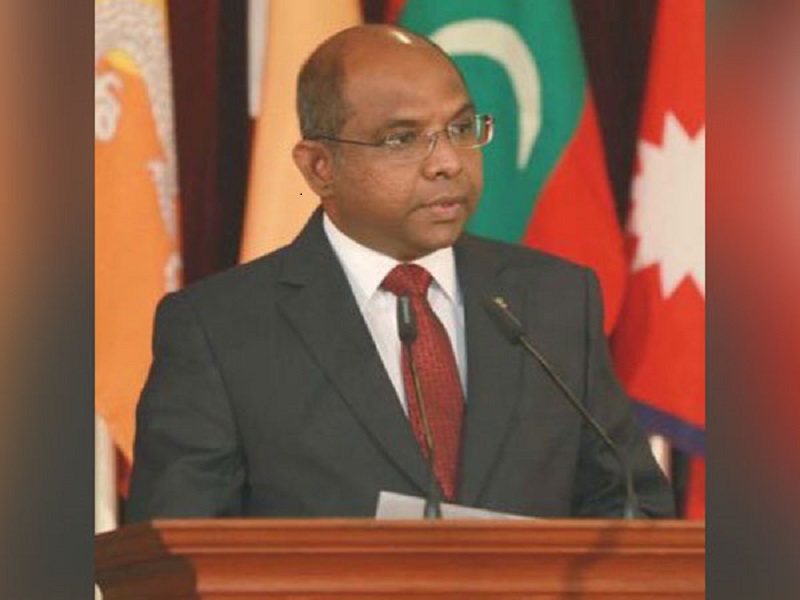

At his first press conference since the annual high-level week ended, UN General Assembly (UNGA) President Abdulla Shahid said on Friday that multilateralism remains the only way to tackle common challenges.
COVID-19 remains a major challenge that “will not be over until we achieve universal vaccination,” Shahid told reporters at the UN headquarters in New York, announcing a plan to convene a high-level meeting in January to take stock of the global inoculation effort.
Noting that “humanity saw a tremendous amount of ingenuity and solidarity with the vaccines in record time,” Shahid said he was convinced that “we have the capacity to immunise the entire world.”
The president will hold an event on Oct 26, titled “Delivering Climate Action for People, Planet, and Prosperity” in response to the other threat of climate change.
Shahid also said that he will continue to hold “Holhuashi Dialogues,” explaining that in the Maldives, a Holhuashi is a place to discuss ideas and important issues.
He said five such sessions would take place “to bring the spirit of Holhuashi” to the Assembly, and “create a space for dialogue, exchange of views, and discussion on solutions.”
The first will focus on people and climate change: “This links with a series of events we are planning in the month of October around the theme of climate change, in the lead up to COP26,” Shahid said.
As the impacts of the pandemic continue, Shahid noted that it is becoming increasingly clear that to build back better, “a stronger gender lens on response and recovery is vital.”
“If we don’t take the necessary steps to turn this tide, we will need over 135.6 years, according to recent studies, to close the gender gap,” said the UN official. “We have to be faster than that.”
The 76th session of the UNGA kicked off on Sept. 14 and the high-level week, featuring the largest annual gathering of world leaders, started one week later on Sept. 21 and concluded on Sept. 27.